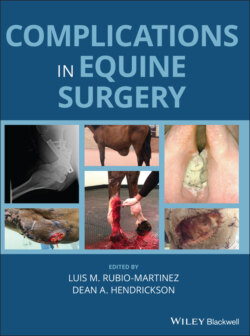Читать книгу Complications in Equine Surgery - Группа авторов - Страница 19
Perioperative Consequences to Surgical Trauma
ОглавлениеAny surgical procedure is associated with some degree of tissue trauma, which results in a stress response by the patient’s body. This stress response follows the same pathways as that after accidental trauma or disease; however, the magnitude of the stress response will vary with the severity of the stimulus. The patient’s condition, severity of disease, anesthesia and surgical procedure will all contribute to the stimulus of a stress response. Healthy patients undergoing elective minor surgery may not sustain any significant effects, but patients with severe trauma or critical illness can enter prolonged catabolic states with notable consequences to morbidity and mortality.
The stress response is multifactorial and governed by inflammatory, metabolic, neurohormonal and immunologic pathways. As a consequence, it is difficult to categorize the degree of stress response as there is no single variable or combination thereof that define stress in a consistent manner. A combination of variables encompassing all involved pathways, and even variables related to other body systems susceptible to stress‐related consequences such as the reproductive system, should be included to define the short‐ and long‐term effects of stress [28]. The pathways involved are totally interrelated and difficult to separate, but for the purpose of this review the stress response in the surgical patient will be divided into four sections: metabolic/nutritional effects, neuroendocrine consequences, inflammatory response, and pain.
